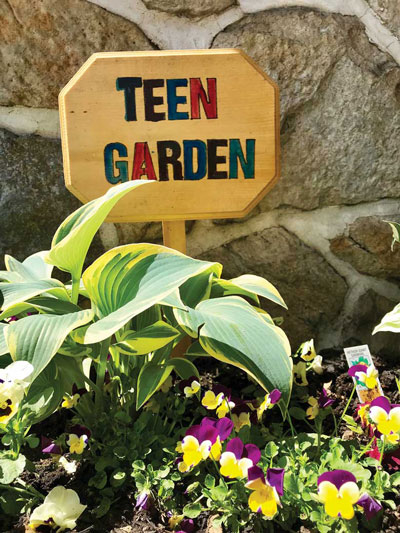“Gardening has such therapeutic value in reducing stress, building mastery, and enhancing dialectical behavior therapy (DBT) skills, including mindfulness, emotion regulation, distress tolerance, and interpersonal effectiveness,” says Myrna Ludwig, LCSW, Senior Primary Therapist at the Moorestown Adolescent Program and facilitator of the Teen Gardening Therapeutic Group. “We’ve seen these positive benefits influence each patient in a truly individual way.”
Especially in the digital age, many teens feel isolated and have limited exposure to outside activities, according to Ludwig. A connection to a hands-on, interactive experience in the fresh air can be liberating and joyful.
The garden’s impact goes beyond the Adolescent Program, bringing happiness and inspiration to other patients and visitors alike. For example, women in the Trauma Program volunteered to clean up winter debris in other areas around the building and began planning their own gardens at home. Through subsequent discussions about their love of gardening, several patients were able to look beyond their trauma to a more peaceful, balanced time in their lives.
As the Moorestown site expands to broaden its offerings, bright yellow daffodils planted by teens two years ago are blooming behind the building near the construction—a reminder of strength and resilience.
“Every day, our patients see the beauty of something they played an integral role in creating,” adds Ludwig. “It’s amazing for their self-esteem, and it’s also a gift to future patients, giving them hope and beauty to nurture during their treatment.”
For more information about Adolescent Services at Princeton House, visit princetonhouse.org/teens or call 888.437.1610.
Article as seen in the Summer 2018 issue of Princeton House Behavioral Health Today.

